Watch
Events
Articles
Market
More
This is an excerpt from a book that informs my thinking regarding the pronunciation of יהוה.
I don't share it to debate or to correct anyone. I am just sharing what informs my understanding and thinking and resulting actions.
It's chapter 2 from a book by Yoseph Viel called "The Complex Name of the Almighty."
Trying to screen capture from a Kindle app is very awkward. It took 16 screenshots of various sizes. I tried to overlap a sentence or two with each one so that it makes it clear which one leads to the next.
I'm going to post them here in this thread, but I really don't know how it's going to turn out because I haven't tried to post a bunch of jpegs here. ?
I hope you all find it informative. I really encourage you to read the whole thing. Yoseph provides all kinds of fascinating information. There's a way you can download it for free as a PDF which you can email to your Kindle app if you prefer to read it in Kindle.
Shalom shalom
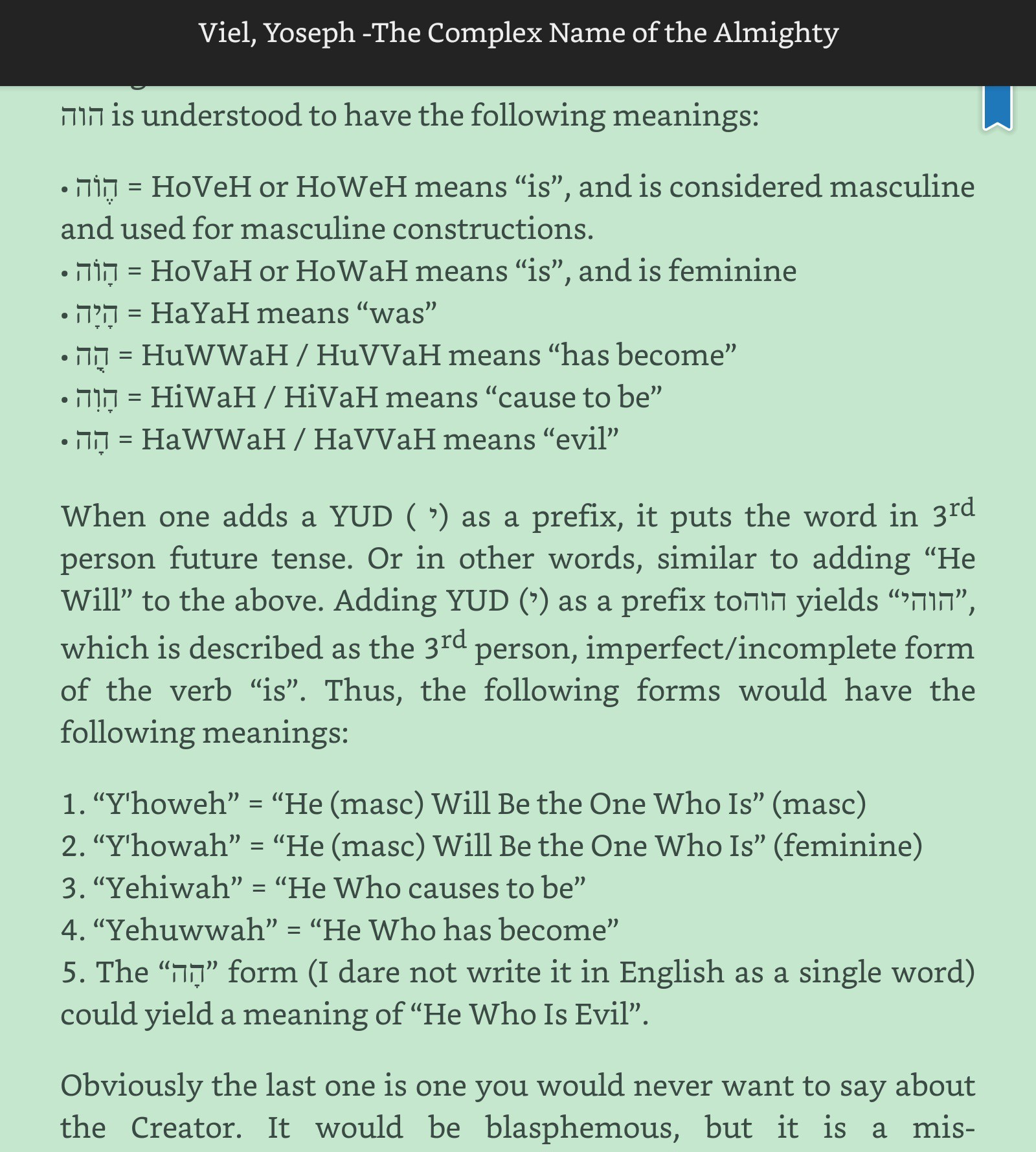



This is an excerpt from a book that informs my thinking regarding the pronunciation of יהוה.
I don't share it to debate or to correct anyone. I am just sharing what informs my understanding and thinking and resulting actions.
It's chapter 2 from a book by Yoseph Viel called "The Complex Name of the Almighty."
Trying to screen capture from a Kindle app is very awkward. It took 16 screenshots of various sizes. I tried to overlap a sentence or two with each one so that it makes it clear which one leads to the next.
I'm going to post them here in this thread, but I really don't know how it's going to turn out because I haven't tried to post a bunch of jpegs here. ?
I hope you all find it informative. I really encourage you to read the whole thing. Yoseph provides all kinds of fascinating information. There's a way you can download it for free as a PDF which you can email to your Kindle app if you prefer to read it in Kindle.
Shalom shalom
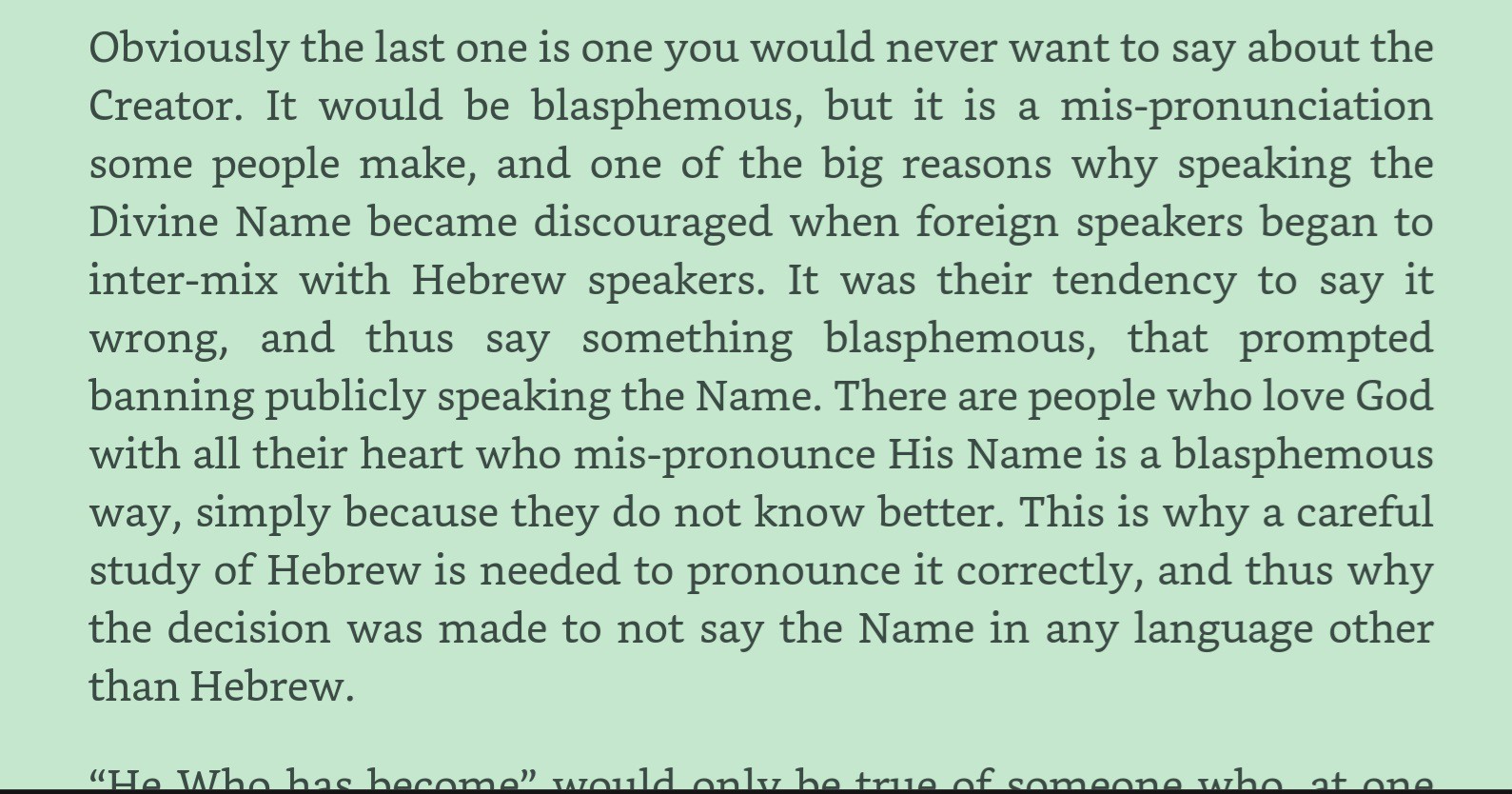



This is an excerpt from a book that informs my thinking regarding the pronunciation of יהוה.
I don't share it to debate or to correct anyone. I am just sharing what informs my understanding and thinking and resulting actions.
It's chapter 2 from a book by Yoseph Viel called "The Complex Name of the Almighty."
Trying to screen capture from a Kindle app is very awkward. It took 16 screenshots of various sizes. I tried to overlap a sentence or two with each one so that it makes it clear which one leads to the next.
I'm going to post them here in this thread, but I really don't know how it's going to turn out because I haven't tried to post a bunch of jpegs here. ?
I hope you all find it informative. I really encourage you to read the whole thing. Yoseph provides all kinds of fascinating information. There's a way you can download it for free as a PDF which you can email to your Kindle app if you prefer to read it in Kindle.
Shalom shalom
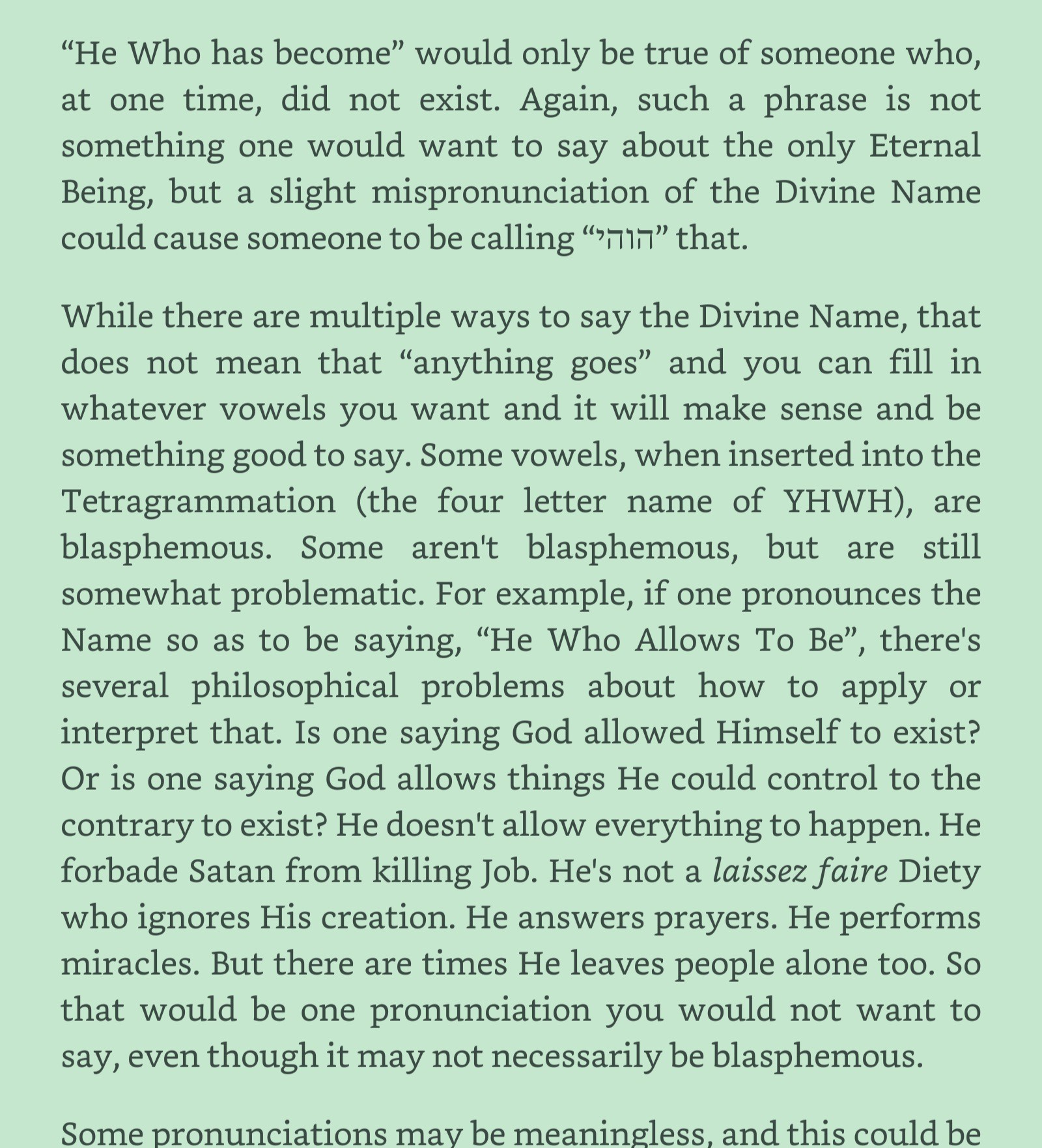



This is an excerpt from a book that informs my thinking regarding the pronunciation of יהוה.
I don't share it to debate or to correct anyone. I am just sharing what informs my understanding and thinking and resulting actions.
It's chapter 2 from a book by Yoseph Viel called "The Complex Name of the Almighty."
Trying to screen capture from a Kindle app is very awkward. It took 16 screenshots of various sizes. I tried to overlap a sentence or two with each one so that it makes it clear which one leads to the next.
I'm going to post them here in this thread, but I really don't know how it's going to turn out because I haven't tried to post a bunch of jpegs here. ?
I hope you all find it informative. I really encourage you to read the whole thing. Yoseph provides all kinds of fascinating information. There's a way you can download it for free as a PDF which you can email to your Kindle app if you prefer to read it in Kindle.
Shalom shalom
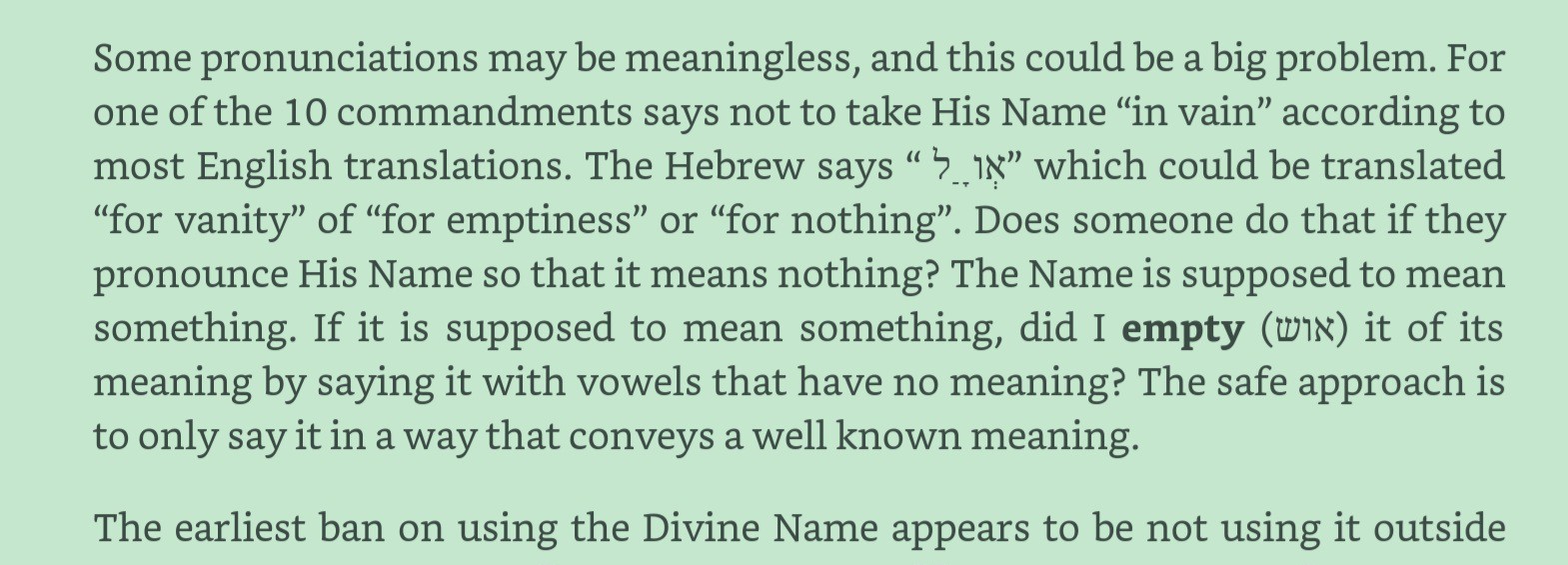



This is an excerpt from a book that informs my thinking regarding the pronunciation of יהוה.
I don't share it to debate or to correct anyone. I am just sharing what informs my understanding and thinking and resulting actions.
It's chapter 2 from a book by Yoseph Viel called "The Complex Name of the Almighty."
Trying to screen capture from a Kindle app is very awkward. It took 16 screenshots of various sizes. I tried to overlap a sentence or two with each one so that it makes it clear which one leads to the next.
I'm going to post them here in this thread, but I really don't know how it's going to turn out because I haven't tried to post a bunch of jpegs here. ?
I hope you all find it informative. I really encourage you to read the whole thing. Yoseph provides all kinds of fascinating information. There's a way you can download it for free as a PDF which you can email to your Kindle app if you prefer to read it in Kindle.
Shalom shalom
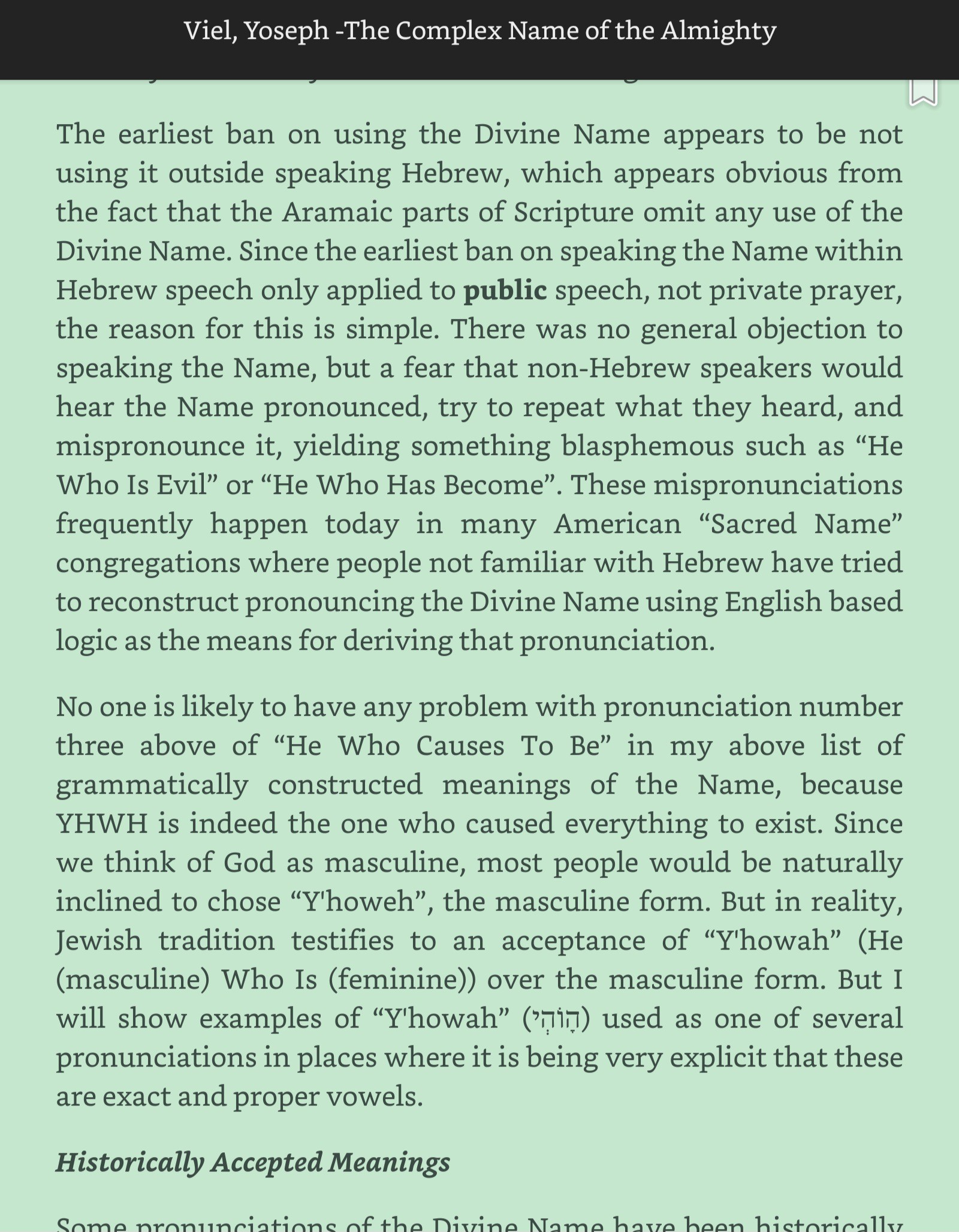



This is an excerpt from a book that informs my thinking regarding the pronunciation of יהוה.
I don't share it to debate or to correct anyone. I am just sharing what informs my understanding and thinking and resulting actions.
It's chapter 2 from a book by Yoseph Viel called "The Complex Name of the Almighty."
Trying to screen capture from a Kindle app is very awkward. It took 16 screenshots of various sizes. I tried to overlap a sentence or two with each one so that it makes it clear which one leads to the next.
I'm going to post them here in this thread, but I really don't know how it's going to turn out because I haven't tried to post a bunch of jpegs here. ?
I hope you all find it informative. I really encourage you to read the whole thing. Yoseph provides all kinds of fascinating information. There's a way you can download it for free as a PDF which you can email to your Kindle app if you prefer to read it in Kindle.
Shalom shalom
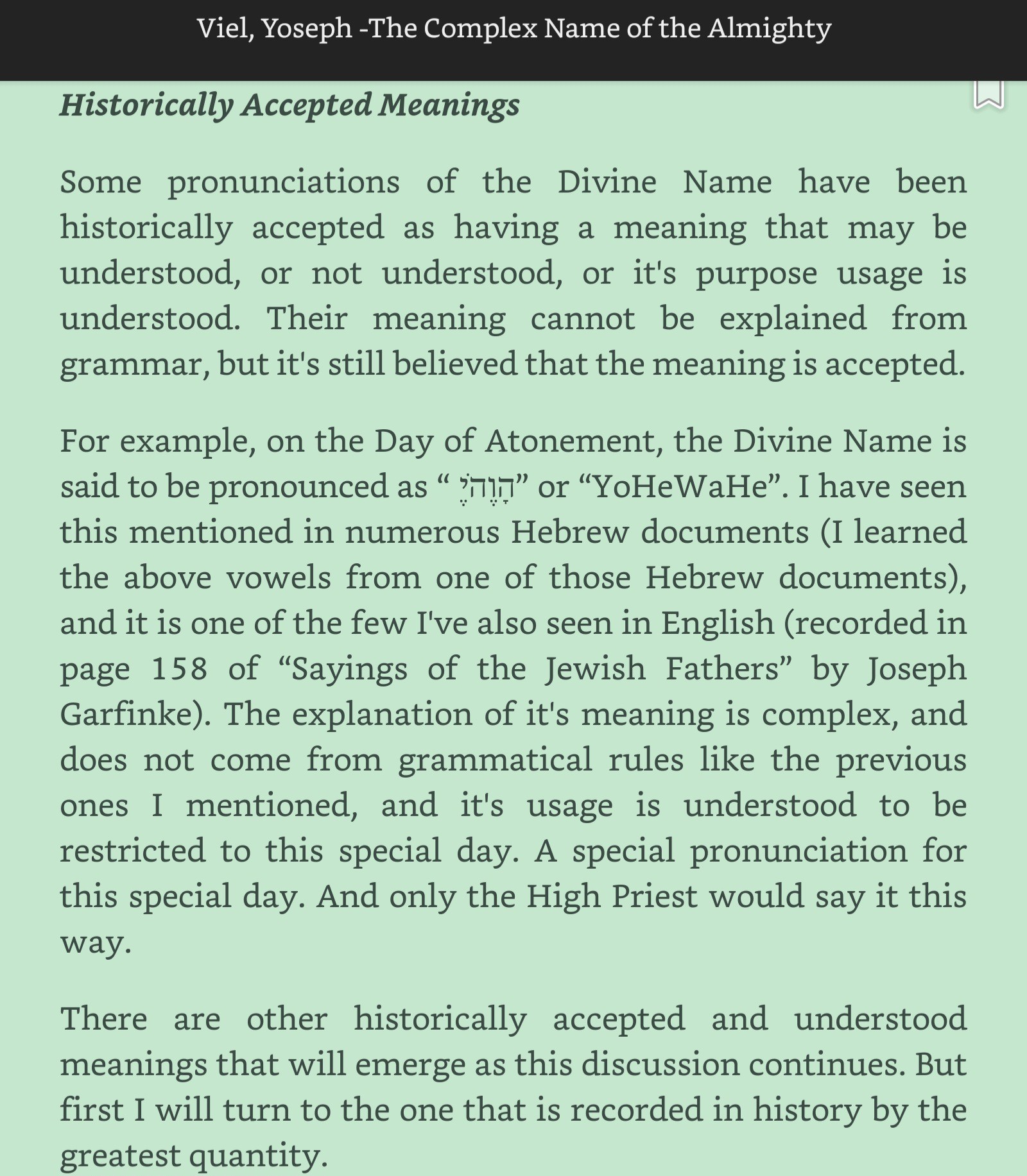



This is an excerpt from a book that informs my thinking regarding the pronunciation of יהוה.
I don't share it to debate or to correct anyone. I am just sharing what informs my understanding and thinking and resulting actions.
It's chapter 2 from a book by Yoseph Viel called "The Complex Name of the Almighty."
Trying to screen capture from a Kindle app is very awkward. It took 16 screenshots of various sizes. I tried to overlap a sentence or two with each one so that it makes it clear which one leads to the next.
I'm going to post them here in this thread, but I really don't know how it's going to turn out because I haven't tried to post a bunch of jpegs here. ?
I hope you all find it informative. I really encourage you to read the whole thing. Yoseph provides all kinds of fascinating information. There's a way you can download it for free as a PDF which you can email to your Kindle app if you prefer to read it in Kindle.
Shalom shalom
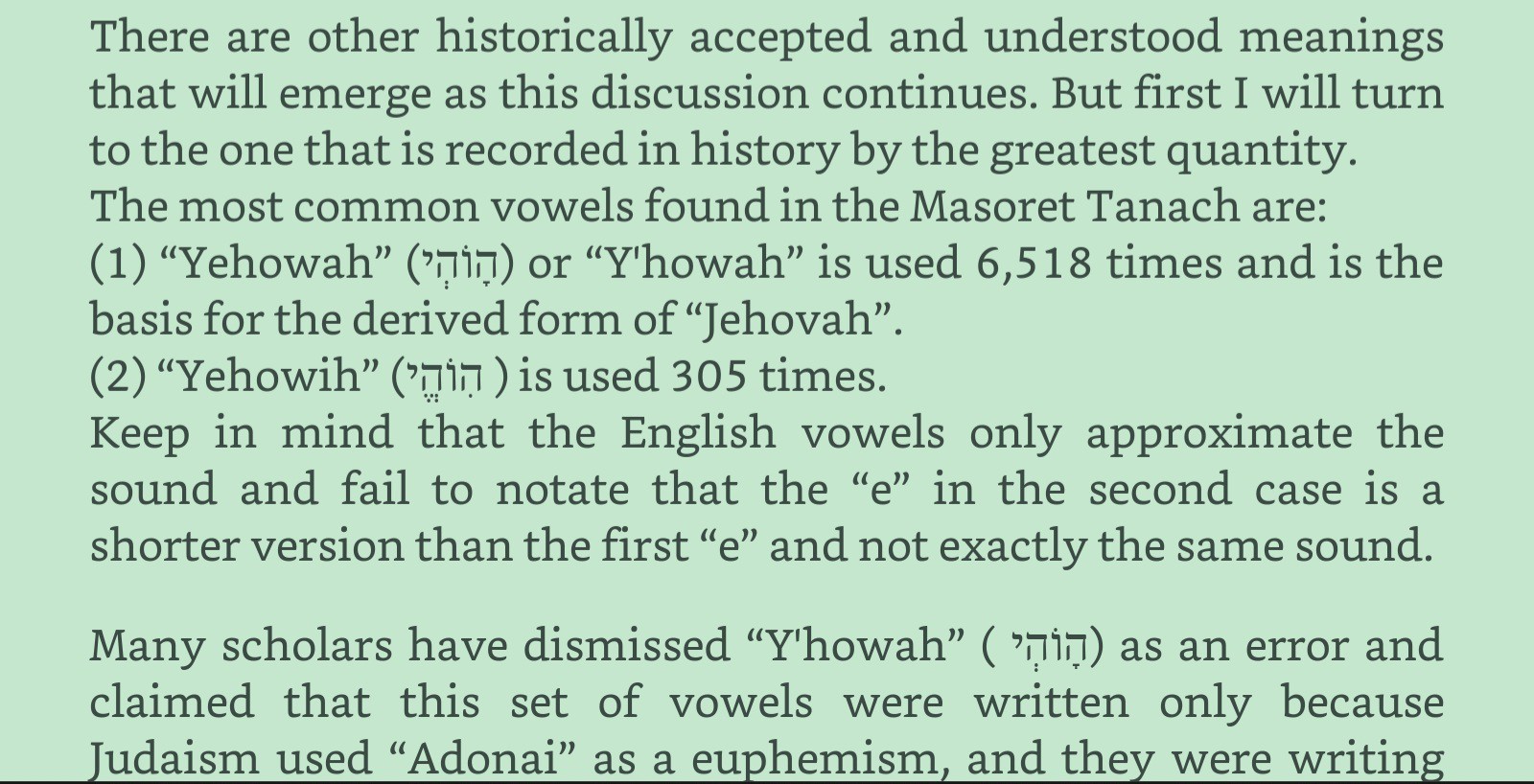



This is an excerpt from a book that informs my thinking regarding the pronunciation of יהוה.
I don't share it to debate or to correct anyone. I am just sharing what informs my understanding and thinking and resulting actions.
It's chapter 2 from a book by Yoseph Viel called "The Complex Name of the Almighty."
Trying to screen capture from a Kindle app is very awkward. It took 16 screenshots of various sizes. I tried to overlap a sentence or two with each one so that it makes it clear which one leads to the next.
I'm going to post them here in this thread, but I really don't know how it's going to turn out because I haven't tried to post a bunch of jpegs here. ?
I hope you all find it informative. I really encourage you to read the whole thing. Yoseph provides all kinds of fascinating information. There's a way you can download it for free as a PDF which you can email to your Kindle app if you prefer to read it in Kindle.
Shalom shalom
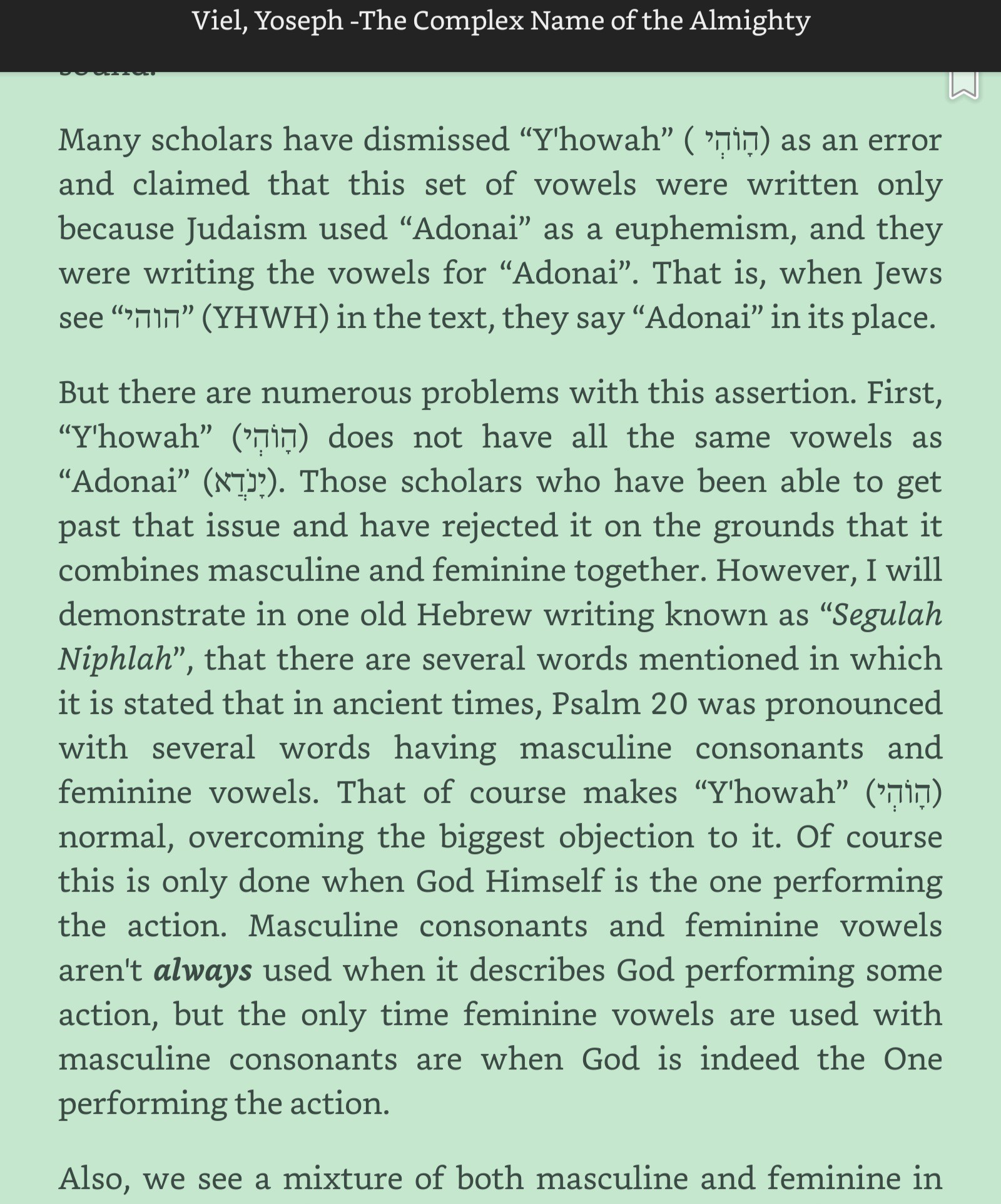



This is an excerpt from a book that informs my thinking regarding the pronunciation of יהוה.
I don't share it to debate or to correct anyone. I am just sharing what informs my understanding and thinking and resulting actions.
It's chapter 2 from a book by Yoseph Viel called "The Complex Name of the Almighty."
Trying to screen capture from a Kindle app is very awkward. It took 16 screenshots of various sizes. I tried to overlap a sentence or two with each one so that it makes it clear which one leads to the next.
I'm going to post them here in this thread, but I really don't know how it's going to turn out because I haven't tried to post a bunch of jpegs here. ?
I hope you all find it informative. I really encourage you to read the whole thing. Yoseph provides all kinds of fascinating information. There's a way you can download it for free as a PDF which you can email to your Kindle app if you prefer to read it in Kindle.
Shalom shalom
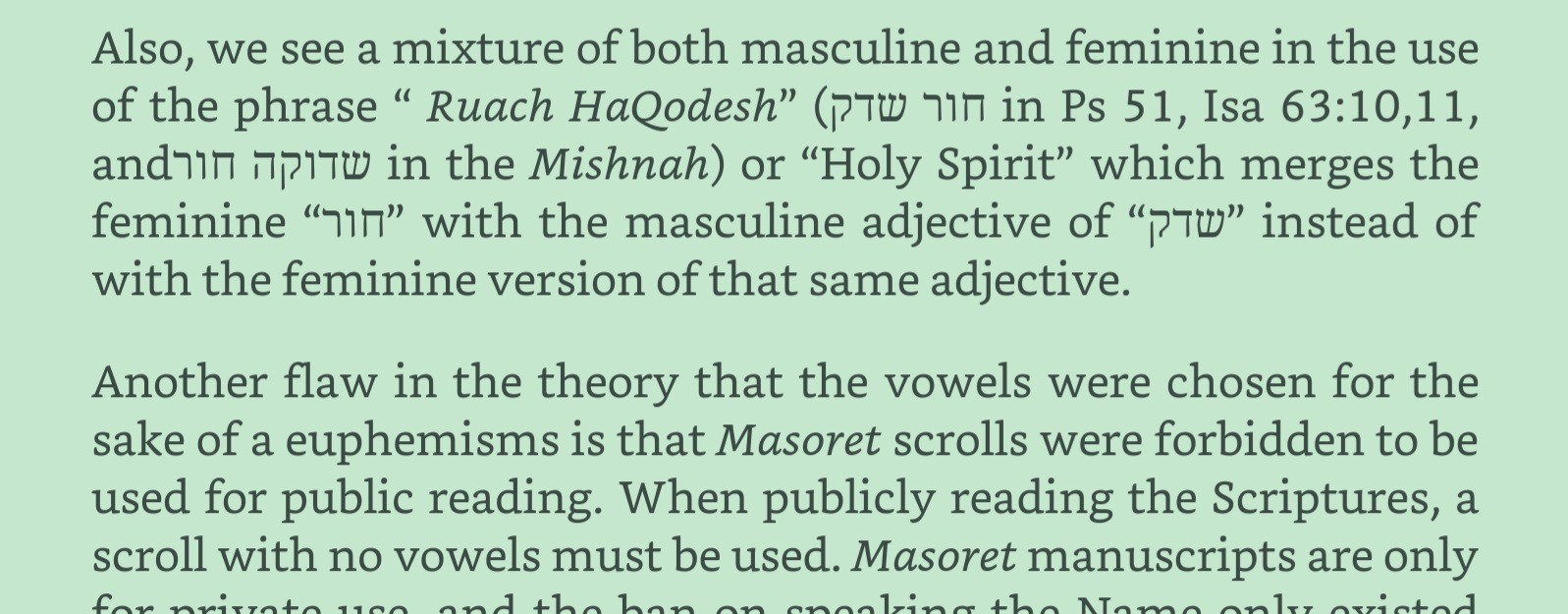



Rhy Bezuidenhout
The blocked person shouldn't see you nor be able to chat with you directly. If you are however part of the same Group then you will see each other in that Group or it will be very one sided as the purpose of Groups is to give everyone the opportunity to talk.
I am currently doing the final tests on the new code upgrade and will have a look at whether the blocked person is in return not able to see your messages and if not then add it in.
Delete Comment
Are you sure that you want to delete this comment ?